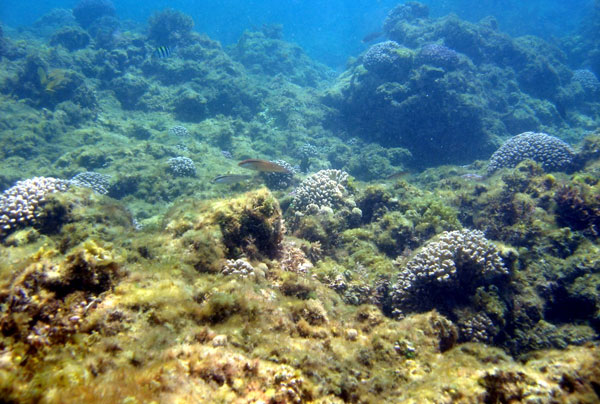Pour iron into the ocean to
In a study published in Nature on July 18, an international team of experts said pouring iron into the sea could help absorb atmospheric carbon emissions and "keep" it at the bottom of the ocean in rows. century, contributing to promoting the fight against climate change.
Although it has added a voice to support the use of the ocean to prevent the warming of the Earth's controversial climate, research results have yet to answer the question of threat. with sea creatures.
According to the study, when dumped into the sea, iron can stimulate the development of small plants that, when the process of growth ends, will become a "trap" to absorb carbon emissions set in Ocean bottom.

In 2004, scientists sprayed 7 tons of iron sulphate (an iron sulphate) - an indispensable 'food' of marine plants, down to the Antarctic sea area.
As a result, diatoms have grown rapidly, contributing to absorb about half of the carbon emissions at a depth of 1,000 meters below the surface.
Sulfur- fed ' algae ' sand algae can sequester carbon for centuries on the ocean floor, and longer in other sediments.
This is the first time a convincing study of the possibility of carbon emissions can be 'buried' in the ocean floor thanks to the absorption of marine algae.
The problem is whether carbon emissions also exist in waters above the seabed - where they can return to the atmosphere, or not?
Dozens of previous studies have also shown that iron can help marine algae grow quickly, but it cannot come to a conclusion about the mechanism of seaweed 'burying' carbon emissions.
The research team also believes that further testing of this issue should continue.
However, the London Convention on the dumping of the sea prohibits the conduct of extensive experiments due to fear of unwanted harms.
Victor Smetacek of the Alfred Wegener Institute - Germany, who led the study, said that pouring iron into the sea to absorb carbon should be under the supervision of the United Nations, and not contrary to the conventions and conventions that are linked. mandarin
Moreover, private companies should not be allowed to conduct experiments, because it is difficult to closely monitor.
- Goose bumps with iron-legged animals with iron armor
- Found traces of new forms of iron from the Antarctic universe
- Acid clouds benefit the oceans
- Top 10 iron-rich foods
- How do bacteria get iron from humans?
- Miraculous fish fever in Cambodia
- What if water on Earth is depleted to pour into Mars?
- With today's science and technology, is Iron Man's armor possible?
- Production of rice with added iron
- Iron fish cure anemia for Cambodians
- Mysterious iron pillar of 1,600 years old stainless steel
- France proceeded to excavate the site from the Iron Age
 Is the magnetic North Pole shift dangerous to humanity?
Is the magnetic North Pole shift dangerous to humanity? Washington legalizes the recycling of human bodies into fertilizer
Washington legalizes the recycling of human bodies into fertilizer Lightning stone - the mysterious guest
Lightning stone - the mysterious guest Stunned by the mysterious sunset, strange appearance
Stunned by the mysterious sunset, strange appearance Genghis Khan massacred many people to change the atmosphere
Genghis Khan massacred many people to change the atmosphere  World's first wind-powered CO2 capture facility
World's first wind-powered CO2 capture facility  What happens if trees stop absorbing CO2?
What happens if trees stop absorbing CO2?  Invented powder that can absorb CO2 more effectively than trees
Invented powder that can absorb CO2 more effectively than trees  Scientists for the first time made diamonds from red peonies
Scientists for the first time made diamonds from red peonies  Diamond is not the hardest material on Earth
Diamond is not the hardest material on Earth 